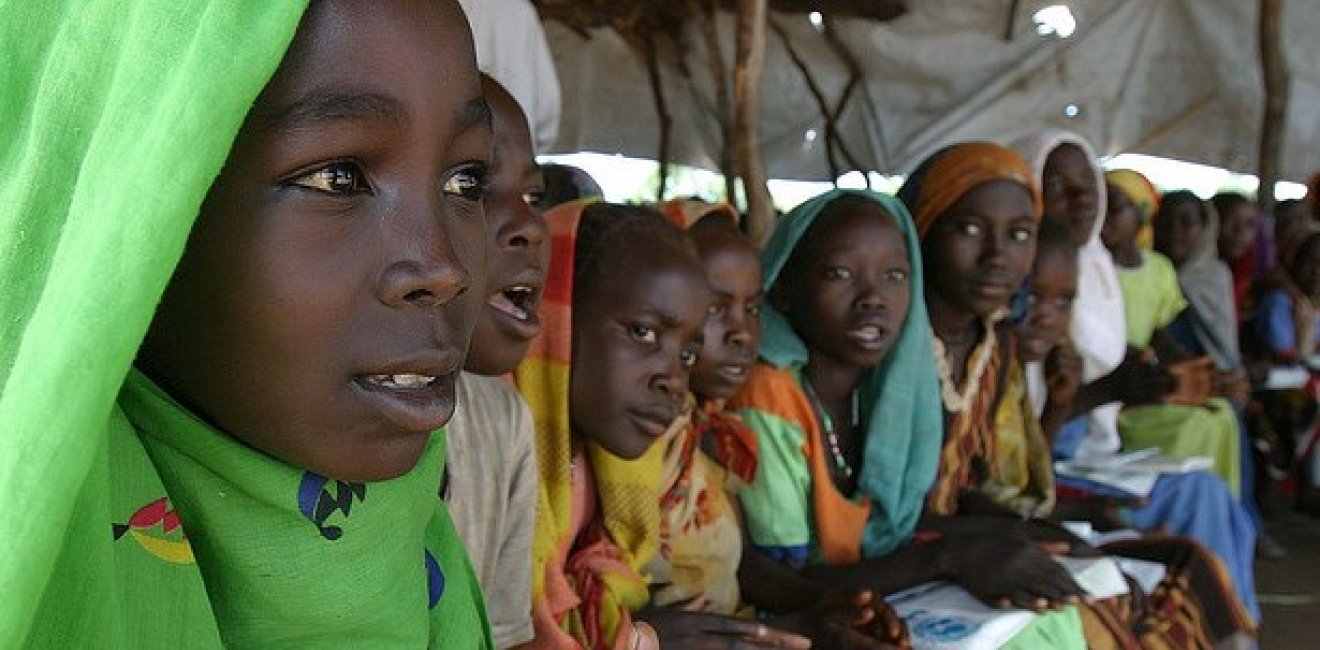
A blog of the Africa Program
CAR is still waiting for its next government. One of the first challenges the newly formed government will face will undoubtedly relate to the humanitarian question. Relative to the month of January, the number of displaced individuals is on the decline, but the situation remains critical for thousands of people.
La Centrafrique est toujours dans l'attente de son prochain gouvernement. Une fois les tractations terminées, l'un des premiers défis pour la nouvelle équipe gouvernementale sera sans aucun doute la question humanitaire. Par rapport au mois de janvier, le nombre des déplacés est en baisse, mais la situation est encore critique pour des milliers de personnes.
This article was translated from French. Click here to read the original from RFI
The number of displaced peoples is less significant than it was six months ago. In January, these 1 million individuals represented a fourth of the population. Today, the number of those displaced numbers around 500,000, many of whom are living in the bush without humanitarian aid, without shelter, and often times without food. Many others live in camps surrounded by precariousness and insecurity.
"At the moment, the situation of those who have been displaced is extremely critical because we lack decent shelter. We have problems getting food, heath care, and the cost of life is expensive. There are also security problems. People come, there are gunshots all the time, people run-away, and at the moment people are still living in the bush", says a displaced person living at a camp in Bambari.
"If you want to leave here and go to town you risk being ambushed by Seleka militants that are hidden on the other side. If you go out of the camp, they will grab you and kill you. They will not let you be. We cannot move. We are trapped here. There is no peace, no cease-fire (…) they still continue fighting", says another resident.
Refugees gone abroad
There are those who have been displaced in CAR, but there are also those who have gone abroad, mainly to Cameroon and Chad. Humanitarian organizations estimate that around 400,000 Central Africans are still abroad. Most of them are Muslims who fled the violence in December and January. Meanwhile, the security situation in Bangui has been improving during the past weeks. It seems that the accords signed between Seleka and anti-Balaka forces are going to hold. Therefore, some Muslims have begun returning home. The PK5 neighborhood in Bangui used to be a ghost town, but now some Muslim habitants have returned home. RFI met and interviewed one of them:
"My name is Adam Oussilla, former mechanic and deputy of the 3rd arrondissement who fled to Cameroon during the fighting. I have returned to contribute to building peace in my country. My house has been destroyed; they evacuated us and I left because we had been attacked. Here in the PK5 life goes on. Ever since returning, I feel safe at home. Come back to Bangui. Come back to CAR. This is your country. Let peace return because after the war (…) the sun comes out after the rain".
Encouraging refugees to return
According to humanitarian agencies it's this type of return, like the one made by Adam Oussilla, that must be encouraged and incited. Even if this is just the beginning and even if sporadic episodes of violence still occur, the displaced have started returning. Meanwhile, many still hesitate to go back because insecurity still persists.
"The security is still extremely precarious. Enormous efforts have been made, but as we all know security does not only depend on the presence of armed forces and the international community. Security also depends on inter-communal cohesion, respect between civilian and armed actors, on the reestablishment of civil society and administration, and on the reestablishment of the police, who must also fight against impunity. Consequently, security is really a mix of different important projects, all of which must work together in order to guarantee people's ultimate safety", states Claire Bourgeois, the lead humanitarian coordinator for the UN in CAR.
Establishing this sort of security is the one of the main issues that new Prime Minister Mahamat Kamoun will have to face as he attempts to apply the Brazzaville peace treaty. These accords are violated almost every day outside of the capital and are still rejected by most Seleka militants. Last week, north of Bangui, in the town of Batangafo, clashes between Seleka fighters and French Sangaris forces resulted in 60 deaths for the ex-rebel forces.
Article Translated by Matthew LaLime, Staff Intern with the Africa Program at the Wilson Center
Photo Credit: hdptcar via flickr

Africa Program
The Africa Program works to address the most critical issues facing Africa and US-Africa relations, build mutually beneficial US-Africa relations, and enhance knowledge and understanding about Africa in the United States. The Program achieves its mission through in-depth research and analyses, public discussion, working groups, and briefings that bring together policymakers, practitioners, and subject matter experts to analyze and offer practical options for tackling key challenges in Africa and in US-Africa relations. Read more

Explore More in Africa Up Close
Browse Africa Up Close
The Innovative Landscape of African Sovereign Wealth Funds



